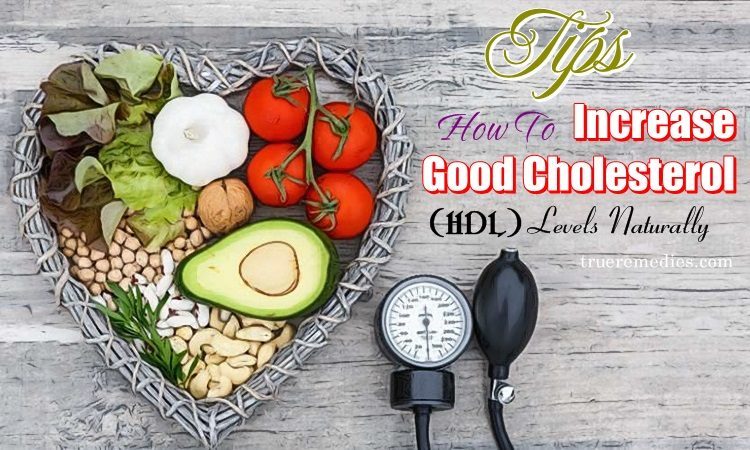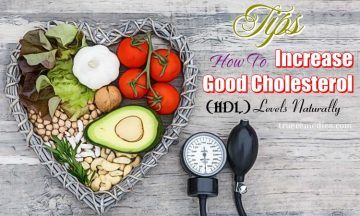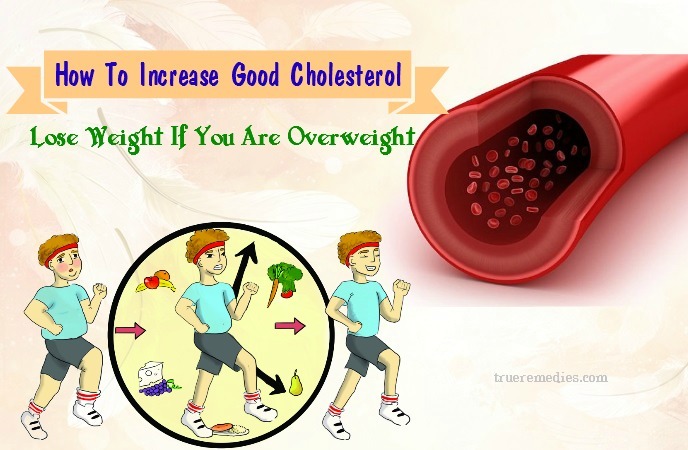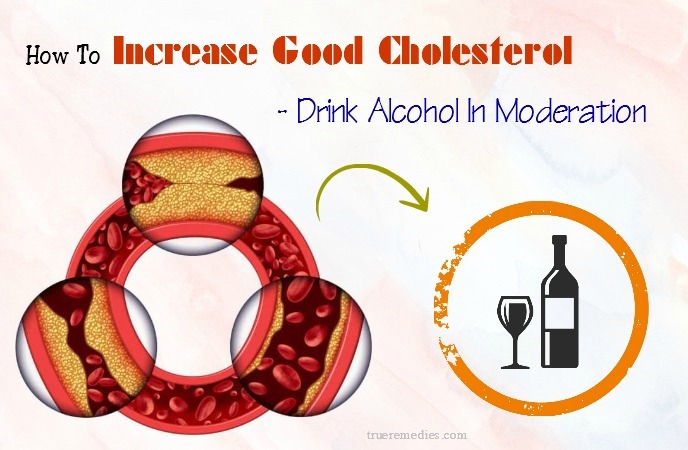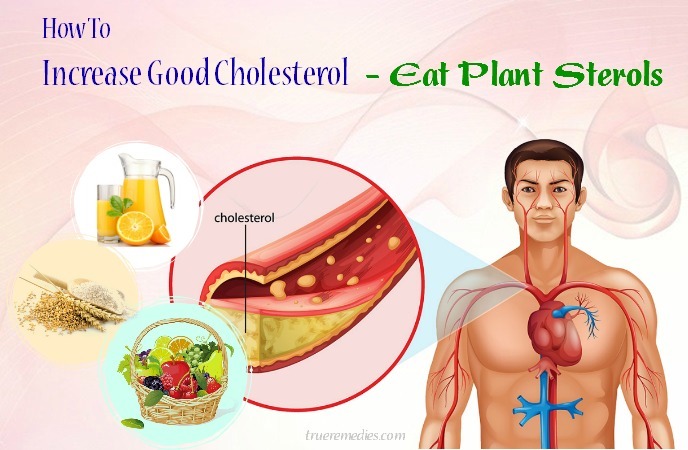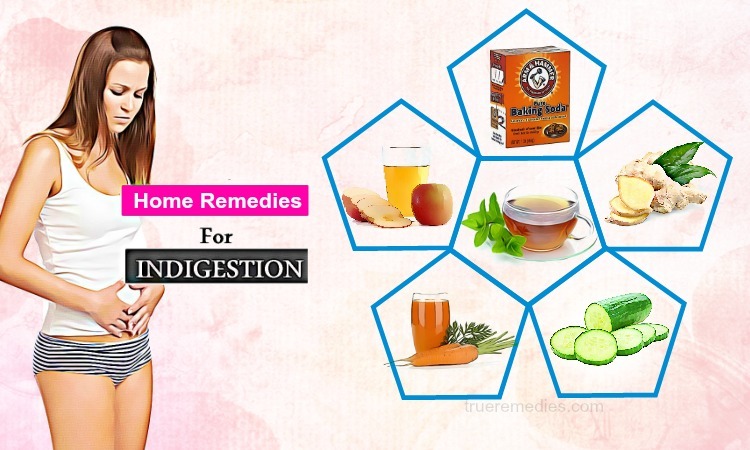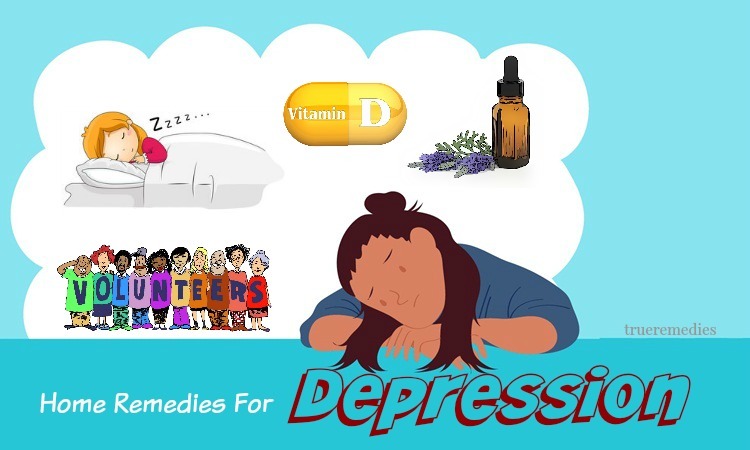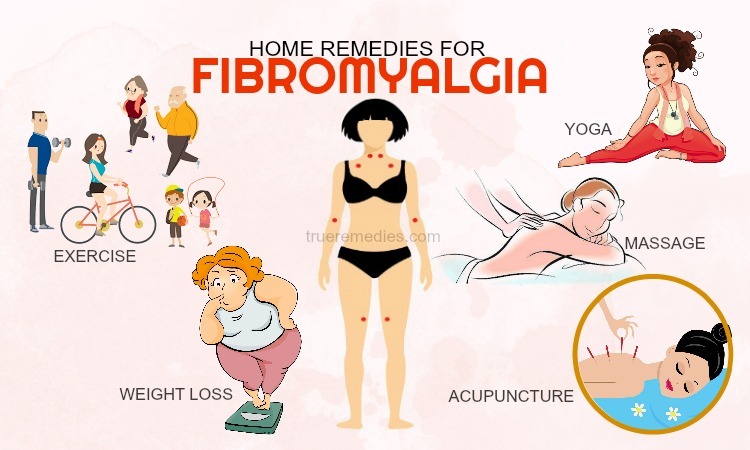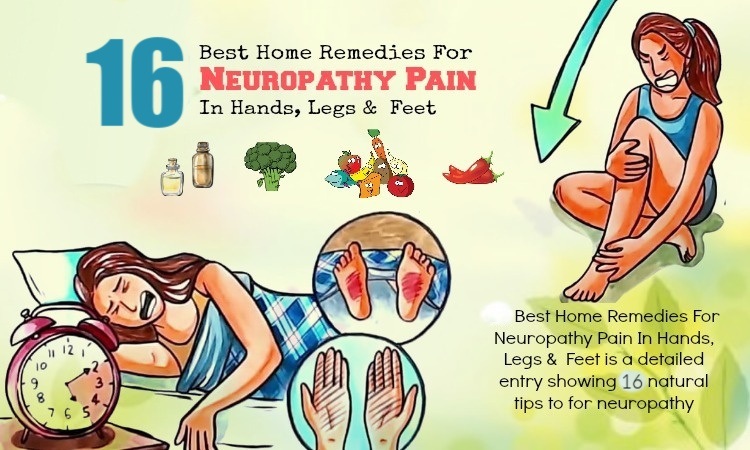Contents
HDL or high density lipoprotein has long been thought to have a positive effect on cardiovascular health. HDL, commonly known as good cholesterol, functions as a shuttle that carries cholesterol from the blood to the liver. Therefore, the way to increase good cholesterol is always a concern of many people.
If you are still struggling to do this, this article is for you. In this article, we present you useful tips to help you increase good cholesterol. The application of natural tips always receives the priority of everyone. But first, to determine exactly what your condition is, let's look at some basic information about good cholesterol.
What Is Good Cholesterol?
Cholesterol is a fatty substance found in the membranes of the majority of tissues in our body and they are transported in the plasma of the human body. There are two types of cholesterol: Low Density Lipoprotein (LDL – bad cholesterol) and High Density Lipoprotein (HDL – good cholesterol).Bad cholesterol is a type of lipoprotein that carries cholesterol in the blood. This index is not beneficial because it causes excessive cholesterol to enter the blood vessel walls, causing atherosclerosis, myocardial infarction,…[1] [2]
Good cholesterol is a mucus protein and it has a fairly high density. In particular, it is possible to take excess cholesterol in the walls of blood vessels to the liver to metabolize, reducing the risk of stroke and myocardial infarction. If your HDL levels are higher than 60mg / dl, you do not need to worry about cardiovascular disease. However, if your HDL levels are less than 40mg / dl, you need to pay special attention to the symptoms of the body. For that reason, everyone wants to increase the good cholesterol.
Contrary to popular belief, HDL is not cholesterol but a cholesterol carrier. There is only one type of cholesterol and it's essential for the body because the body needs cholesterol to build up the cell membrane and some hormones. However, cholesterol does not dissolve in the blood so it needs to be carried by the transporter. Basically, HDL is a cholesterol reducer because it carries excess cholesterol in the blood to the liver for recycling and / or excretion. HDL is the smallest lipoprotein. HDL is called a good lipoprotein because it reduces the buildup of cholesterol in the arteries.
Some Misconceptions About LDL And HDL
It is thought that increasing HDL levels will directly reduce the risk of cardiovascular disease. However, scientists have shown that this is not entirely true because new information suggests that we need to pay attention to the way HDL performs its function rather than paying attention to the amount of HDL in the body. They believe that the function of HDL is really important for cardiovascular health. There is not much information yet to conclude whether HDL's ability depends on sex, race, obesity, sensitivity or insulin resistance, or inflammation or not.
TrueRemedies Partner Solutions

Need a Help from the Leading Expert Online, Available 24/7?
They’re all here and ready to answer your questions online or by phone. Keep asking questions until you get the answer you need.
Remember that HDL is produced by the body. Like all lipoproteins carry cholesterol, HDL is produced by the body (the liver) and it is not present in the food. The amount of HDL produced is determined by the gene and is related to the need for cell regeneration, but the levels of all lipoproteins depend on diet and exercise. On the other hand, cholesterol is present in foods (such as poultry, eggs, dairy products, and butter) and is also produced by the liver and the intestinal wall. The liver removes cholesterol from the body by secreting cholesterol out of the bile (bile is excreted in the stool). This process of cholesterol regulation affects the levels of lipoprotein, including HDL levels.
HDL works in tandem with LDL. LDL is called bad cholesterol, but in fact it is just a cholesterol transporter from the liver to the cell, including the damaged arteries. The problem arises when cholesterol builds up in the artery wall, it attracts macrophages and stimulates plaque formation – a typical sign of atherosclerosis or blocked artery.HDL works in tandem with LDL and tries to balance the amount of cholesterol needed to regenerate cracks in the artery instead of limiting accumulation. In physiological terms, nothing is called “good” or “bad” cholesterol, although some types of lipoproteins are considered healthier than others.
What Are Common Causes Of High Cholesterol?
Good cholesterol levels are too low while too high cholesterol levels can cause high cholesterol. Some factors like obesity and unhealthy diet can increase LDL cholesterol levels and decrease the amount of HDL cholesterol, causing this condition. Many people suffer from mixed lipid disorders (high LDL levels and low HDL levels). This increases the risk of heart disease. Some people also have elevated triglyceride levels. This is a disorder of blood lipids and it increases the risk of atherosclerosis.
In addition, the structure of the gene may also limit the ability of the cells to remove LDL or cause the liver to produce too much cholesterol. To treat high cholesterol, you need to increase your good cholesterol levels and decrease your bad cholesterol levels.
What Are Common Symptoms Of High Cholesterol?
Many patients think that high cholesterol will cause symptoms such as headache, fatigue, and fever, but this is not true. In fact, people with high cholesterol have almost no specific signs. Therefore, blood tests are the only way to detect this condition. However, this condition causes many complications, which are symptoms of some cardiovascular diseases.However, you may experience symptoms not mentioned. If you have any questions about the signs of the disease, please consult your doctor.
Who Is At High Risk Of This Condition?
Anyone can get into this situation without establishing and maintaining a healthy lifestyle. It is estimated that high cholesterol has caused 2.6 million deaths. This condition is quite common, especially in people who are obese or who do not regularly exercise.You can control this problem by minimizing risk factors. Please see your doctor for more information.
When To See A Doctor?
As we have said above, this situation is almost unspecific, so it is difficult to diagnose it yourself. Therefore, every 6 months, you should see a doctor to check your general health. Early diagnosis and treatment can prevent this condition from progressing and avoiding emergency situations, so you should see your doctor as soon as possible to avoid this serious condition.Besides, if you have any questions about cholesterol, please consult your doctor. Each person's condition is different, so please consult your doctor to receive the information you want.
Above is the basic information about cholesterol. As you can see, increasing good cholesterol levels is very important. It is time to find out what the best tips on how to increase good cholesterol (HDL) levels naturally are. Take a look at TrueRemedies.com!
Top 23 Tips On How To Increase Good Cholesterol (HDL) Levels Naturally
1. Lose Weight If You Are Overweight
This is the first home remedy in this list of tips on how to increase good cholesterol levels naturally. Excess weight will adversely affect HDL levels. In fact, if you are overweight, losing a few kilograms of weight will also help to improve your cholesterol level (every 3 kilograms will help increase 1 mg / dL HDL). This means if you lose 3 kilograms of weight or more, you can increase your HDL levels and get rid of low density lipoprotein cholesterol. Combining exercise with healthy eating will help you lose weight. You can lose weight without doing both these principles [3].
However, to lose weight effectively, you should best perform both of them. You should focus on reducing calorie intake per day and exercise regularly. Just 30 minutes of walking a day also helps to lose weight steadily and safely. In addition, you can learn more about safe and effective weight loss ways to quickly achieve your goals. In the process of losing weight, you need to pay attention to the following:
- If your body mass index is higher than 30, you need to lose weight to not only improve your HDL cholesterol but also improve your overall health.
- Not fasting. To lose weight, you should eat healthy foods with the right portion at the right time. Just like a bear before hibernation, if you are hungry, your body will find ways to store fat to satisfy your hunger. You should eat plenty of nutritious foods in the morning and eat less at the rest of the day.
- To lose weight effectively, you need to have enough calories, adequate nutrition and proper nutrition, not eating more fat, sugar, and fast food because these foods will cause weight gain.
- Eat six small meals a day. A study in the UK has shown that people who ate six small meals a day burned more cholesterol than those who ate only two meals, although eating six smaller meals actually provided more energy and fat. Divide your diet into five or six light meals. This will help you avoid starvation and reduce appetite.
- Long-term exercise programs and a combination of activities such as aerobics and endurance training will be the best way to increase HDL cholesterol levels. Within 2 months, aerobic exercise can increase the HDL level by up to 5% in healthy adults. You can start doing exercises like walking, running, biking or swimming for 30 minutes, at least 5 times a week.
- Not impatient during weight loss. Losing a few kilograms in a week is considered successful. Because of impatience, most people who want to lose weight are quickly discouraged and they even quit when their weight loss plan has just started because they do not notice the real results. Remember that the slogan “slow but sure” will help you lose weight more effectively.
- People are not exactly the same and depending on the person's condition, the weight loss program for each individual may be very different. Make sure you consult your doctor before starting something too ambitious.
2. How To Increase Good Cholesterol – Exercise Regularly
This is another must-try treatment in this list of tips on how to increase good cholesterol levels naturally. Raise your heart rate at least 5 times a week, at least 30 minutes each time with activities such as basketball, gardening, walking, running, biking or swimming [4].
Getting to the gym is a great option but you should not try to combine all the forms at once. Being excited about a new and exciting exercise routine can make you easy to get back into a relaxed state of mind. If you do not have enough time to exercise, you can divide it into three times, 10 minutes each time. At work, take a break and take a quick walk for 10 minutes before lunch break, after lunch and when leaving the office. If you feel this is too difficult, you may not be ready for a more intensive training regime.
For the best exercise results, try the intermittent exercise. Intermittent exercise is high intensity exercise for a short period of time, followed by low intensity exercise for longer periods of time. To try this exercise, you can quickly run a round, and then walk 3 rounds slowly.
3. Eat Healthy Fats
This remedy is one of little – known tips on how to increase good cholesterol levels naturally. A healthy diet should consist of some fat (about 25-35% of the total calories a day needs is from fatty acids). However, it is advisable to limit saturated fat intake (from animals) to no more than 7% of total calories per day, as saturated fat contains cholesterol. Instead, you should focus on a diet rich in fats from plants. For example, you should choose more monounsaturated and polyunsaturated fats, omega-3 fats found in fish and flaxseed. Avoid consuming trans fat as they damage blood vessels and negatively affect cholesterol levels. Keep in mind that eating foods high in cholesterol does not affect your blood cholesterol levels, as the liver is actually the regulating organ.
You should eat meat in moderation and choose lean meat to eat. Eat beans or vegetables instead of meat 1-2 times a week. Vegetarians should pay attention to the addition of nutrients to the body to prevent malnutrition. To be healthy, you should eat more saturated fat as they help to increase HDL levels.
Monounsaturated fats are found in nuts (almonds, peanuts, cashew nuts, macadamia nuts, and peaches), avocado, olive oil, sesame oil and Tahini sauce. Foods rich in polyunsaturated fats include soybean oil, sunflower oil, walnuts, tofu, high fat fish such as salmon and mackerel. Trans fat (hydrogenated fat) is abundant in processed foods such as biscuits, fried foods and margarine.
4. Quit Smoking
The next treatment in this list of tips on how to increase good cholesterol levels naturally is quitting smoking. Cigarette smoking damages all organs in the body and causes cardiovascular problems, contributing to premature death. Experts estimate that smoking increases the risk of coronary heart disease and stroke by up to four times that of non-smokers [5].
In addition to being associated with many diseases, including lung cancer, smoking also negatively affects cholesterol and LDL / HDL levels. In essence, smoking lowers HDL levels and increases total cholesterol in the blood. Inhalation of cigarette smoke also lowers HDL levels.
Toxins in cigarette smoke damage the inside of the bloodstream and stimulate cholesterol buildup to reproduce the damage. As a result, plaque builds up and HDL cholesterol levels are reduced. Studies have shown that smoking cessation has a direct impact on HDL levels, up to 10% in some cases. Talk to your doctor about ways to quit smoking, such as using a patch or nicotine candy.
5. How To Increase Good Cholesterol – Drink Alcohol In Moderation
This sounds strange when it comes to tips on how to increase good cholesterol levels naturally, but it works. It is best not to drink alcohol because ethanol is very toxic to the body and is a carcinogen. Although ethanol can dilute blood, but basically, it will negatively affect health.
On the other hand, taking a moderate amount of alcohol (not more than one cup a day) can increase HDL levels [6].
More specifically, red wine is thought to be beneficial for heart health because red wine is rich in antioxidants that help prevent blood vessel damage. As a result, the body needs less cholesterol to “support” the recurrence of arterial damage, thereby increasing the production of HDL from the liver to bring cholesterol out of the bloodstream. If you do not currently drink alcohol, you should not start drinking to increase HDL levels. Besides drinking alcohol, there are other ways to increase HDL levels but still good for health. Antioxidants in red wine are not alcohol related, so drinking fresh grape juice or eating fresh grapes can bring benefits to cardiovascular health.
Read more: 25 Tips On How To Improve Blood Circulation In The Body
6. Eat More Dark Fruits And Vegetables
The next one in this list of tips on how to increase good cholesterol levels naturally is eating more dark fruits and vegetables. All fresh fruits and vegetables are beneficial for health but dark red and dark purple fruits and vegetables will increase HDL levels and decrease LDL levels. As mentioned above, grapes and other dark fruits are rich in antioxidants, especially colorful ones called anthocyanins.
Studies show that consuming anthocyanins (in whole fruits or functional foods) can increase HDL levels by nearly 14% and decrease LDL levels. Anthocyanin-rich foods include plum, red and purple grapes, red and black raspberries, purple cabbage and eggplant. Eating more fruits and vegetables also increases the amount of fiber that is shown to help control cholesterol levels in the blood. This is great information for those who like to eat vegetables and fruits.
7. Use Olive Oil For Frying Instead Of Butter
Butter carries more saturated fat, which increases LDL cholesterol. In contrast, olive oil contains many antioxidants that lower LDL cholesterol without affecting your HDL cholesterol. The Food and Drug Administration (FDA) recommends eating 2 tablespoons or 23 grams of olive oil a day to boost cardiovascular health. Some studies have also shown that cholesterol-lowering effects are more effective when you use pure olive oil.
8. Absorb At Least 25 To 30 Grams Of Fiber Per Day
No wonder, this is definitely one that should be mentioned in this list of tips on how to increase good cholesterol naturally. Fiber is an important part of a healthy diet because it promotes cardiovascular health. Soluble fiber lowers cholesterol levels in your body by linking to LDL cholesterol molecules right in your digestive tract, preventing them from penetrating into the bloodstream. Soluble fiber is available in many foods such as whole grains, beans, nuts and apples.
Insoluble fiber is an important part of your diet. They do not work to reduce bad cholesterol, but help the digestive system become healthy and help you easy to defecate. The source of insoluble fiber is whole wheat bran and small grain products.
9. Eat More Complex Carbohydrates
Eating more complex carbohydrates is the next remedy in this list of tips on how to increase good cholesterol naturally. Complex carbohydrates are rich in nutrients such as vitamins, minerals, and fiber. They also help you increase your good cholesterol and control bad cholesterol. In contrast, simple carbohydrates such as sugar are associated with elevated cholesterol. You can find complex carbohydrates in raw oats, legumes, cabbage, and pasta made from corn. Many studies have shown a link between eating monosodium glutamate with elevated cholesterol and plasma lithium. Consequently, you should limit your intake of sweets and baked goods [7].
10. Eat More Fish And Less Red Meat
Fish contains omega-3 fatty acids. This type of omega is very effective in increasing LDL cholesterol, so it is good for the heart. The nutrition guide encourages you to eat at least two fish meals a week.Omega-3 fatty acids are most abundant in salmon, herring, sardines, and tuna.
Red meat contains high levels of LDL cholesterol and saturated fat. Not only that, red meat contains acetate and these substances, when used, will increase cholesterol levels in the body, negatively affecting our health. Therefore, you should limit the consumption of red meat such as beef, lamb, goat meat, and pork. When selecting beef, choose slices of lean meat, or you can choose protein sources from white meat like chicken or turkey whenever possible to control cholesterol in your body.
11. Eat More Avocados
This remedy is one of little – known tips on how to increase good cholesterol levels naturally. Not only are avocado trendy salad favorite of many people, but they also have soluble fiber and plant sterols. They are a rich source of monounsaturated fats from plants and also contain other nutrients such as protein, vitamins and minerals. These are very good for the human heart. However, avocados and nuts contain lots of calories, so you should not eat them much. Too much calories is the cause of overweight. When you are overweight, you are more likely to have heart disease. Therefore, do not hesitate to add this fruit to your meals as part of a balanced, healthy diet.
12. Add Whey Protein To Your Diet
The next treatment in this list of tips on how to increase good cholesterol levels naturally is adding whey protein to your diet. Whey protein is soluble in milk and has been shown to increase HDL cholesterol and reduce LDL cholesterol in the blood. Whey protein is usually added with vanilla and chocolate, and can be found in the ingredients of stirring egg, barley powder and yogurt. If you exercise regularly or are pregnant or breastfeeding, you should increase your daily protein intake. If you are not sure how much protein your body needs, please consult your doctor.
Note: Excess protein is not good for the body. Monitor and limit the amount of protein you consume at 15-25% of your daily diet or 0.8-1.2 grams per kilogram of your weight.
13. Eat Plant Sterols
Plant sterol helps you control cholesterol in your body by preventing cholesterol absorption, lowering bad cholesterol and increasing good cholesterol. Eating a lot of plant sterols can be a good way to increase your HDL cholesterol and improve your cardiovascular health. You should consume 2 grams of plant sterols per day to reduce your cholesterol by 5 to 10%. Plant sterol is found in nuts, fruits, grains, beans, pumpkin seeds, orange juice, and yogurt.
14. Drink Green Tea
This sounds strange when it comes to tips on how to increase good cholesterol levels naturally, but it works. A health study has shown that green tea is likely to contribute to an increase in HDL cholesterol and a decrease in LDL cholesterol in the body. Green tea also has the ability to prevent the bowels from absorbing cholesterol and, above all, helps the body to excrete bad cholesterol into the external environment. Green tea has many health benefits and it is believed to improve the immune system as well as prevent infection. Therefore, instead of regularly drinking soda, drink 1-2 cups of green tea a day. Your body will thank you for this.
15. Get More Niacin
In fact, niacin is a B group vitamin which the human body uses to turn the food into regular energy. Also, it keeps our digestive system, skin, hair, eyes and nervous system in the optimal state. The majority of people receive B3 or niacin from diets, yet it is also usually taken in prescription-strength doses to help deal with low good (HDL) cholesterol levels. The supplementation of niacin could increase HDL cholesterol by over 30% [8].
Niacin supplements could result in unwanted secondary effects, particularly if taking at the high dosages. Some examples are itching, tingling in skin, flushing (feeling uncomfortable with heat), liver, gastrointestinal and muscle problems.
In regard to niacin, you should add more foods rich in it to your daily diet. Such foods are chicken breast, mushrooms, peanuts, turkey, tuna, liver, green peas, grass –fed beef, avocado, and sunflower-seeds. Have more these food items as a natural way on how to increase good cholesterol levels.
16. Take More Rapeseed Oil
If you do not like olive oil, opt for rapeseed oil. Being a heart-healthy oil, rapeseed oil is packed with monounsaturated, has the least content of saturated fat among oils. Also, it possesses distinct advantage over the olive oil – it has a higher smoke point. Thus, it is much suitable for cooking at the high temperatures.
17. Groundnut Oil
Peanut or groundnut oil is one of monounsaturated oil with the ability of elevating HDL cholesterol levels in the body. Similar to rapeseed oil, this oil is also suitable for higher cooking temperature. But do not go overboard because all dietary fats, both unsaturated and saturated, are jam packed with calories. Thus, you should use them sparingly to avoid increasing weight.
Learn more: 22 Natural Home Remedies For Palpitations Treatment
18. Walnuts
Walnuts are high in polyunsaturates and monounsaturates, in addition to the high level of omega-3 fatty acids. A study has proven that people who consumed a moderate amount of walnuts per day had higher good cholesterol and lower bad cholesterol levels.
19. Almonds
Among tips on how to increase good cholesterol levels, almonds are also full of heart-healthy fats which help to increase HDL levels. This feature is similar to other tree nuts. According to a 2015 trial, people who consumed a small amount of unsalted almonds daily had higher levels of HDL cholesterol within their body by about 14% after about 6 weeks.
20. Kidney Beans
To improve your own LDL/HDL ratio, you can increase the intake of kidney beans in your diet. They contain rich content of antioxidants and there is a link between diets with high antioxidant levels and increase HDL cholesterol levels.
21. Blueberries
One of great food items to add to your diet is blueberries – another rich source of antioxidants. Similar to other berries like blackcurrants, strawberries and raspberries, blueberries also help to increase the HDL cholesterol in the body. Adults who consumed a small bowl of berries daily for about 2 months had an increase of HDL levels by about 5%.
22. Orange
Canadian researchers at the University of Western Ontario showed that drinking some glass of orange juice daily will increase HDL cholesterol levels by about 1/5. This is thanks to the bioflavnoid in orange named hesperidin. Hence, do not forget to add orange to your diet for a natural HDL boost.
23. Ask Your Doctor About Using Medication
This is the last remedy in this list of tips on how to increase cholesterol levels naturally. If you have high cholesterol and changing your lifestyle does not work, your doctor may suggest that you take medicine. Statins help lower LDL cholesterol levels, while boosting HDL cholesterol levels in your body. Statin is sold in the market with many names such as Lovastatin (Altoprev, Mevacor), Rosuvastatin (Crestor), Atorvastatin (Lipitor), and Fluvastatin (Lescol). Side effects of mild and characteristic hypoglycemic medications include muscle pain and some changes in the digestive system. Women who are pregnant should not take this medicine.
Although Statin is relatively effective in lowering total cholesterol levels, it does not significantly affect HDL levels (it increases HDL levels by no more than 5-10%).However, other drugs, such as niacin and fibrates, can significantly increase HDL levels. Niacin is often considered as the most effective drug to increase HDL levels (although its mechanism of action is unclear). Niacin, also known as vitamin B3, is a powerful vasodilator (which helps to relax the arteries and lower blood pressure). It can even increase HDL levels by more than 30% in some cases. You should start taking Niacin with a low dose. Niacin can cause flushing which makes you uncomfortable.
Keep in mind that although these medications may increase HDL levels, they do not improve cardiovascular health. Therefore, maintaining a healthy diet and a scientific lifestyle is essential.
There, you have discovered tips which can help you increase your goof cholesterol levels. As you can see, they are all very safe and effective ways. Let’s choose some of them and alternative them to see how effective they are. If you have any contributing ideas about our article of “Top 23 Tips On How To Increase Good Cholesterol Levels Naturally” introduced in How To Category, do not hesitate to drop your words below this post. We will answer as soon as we could.

